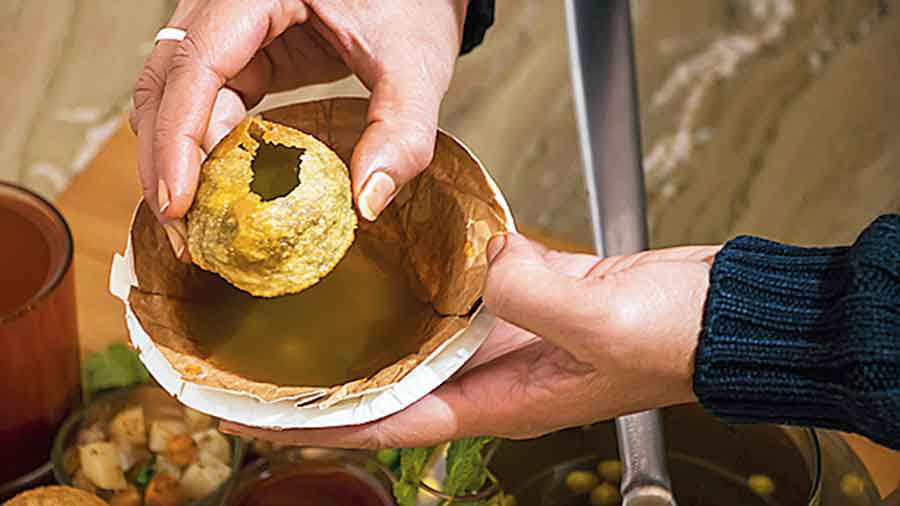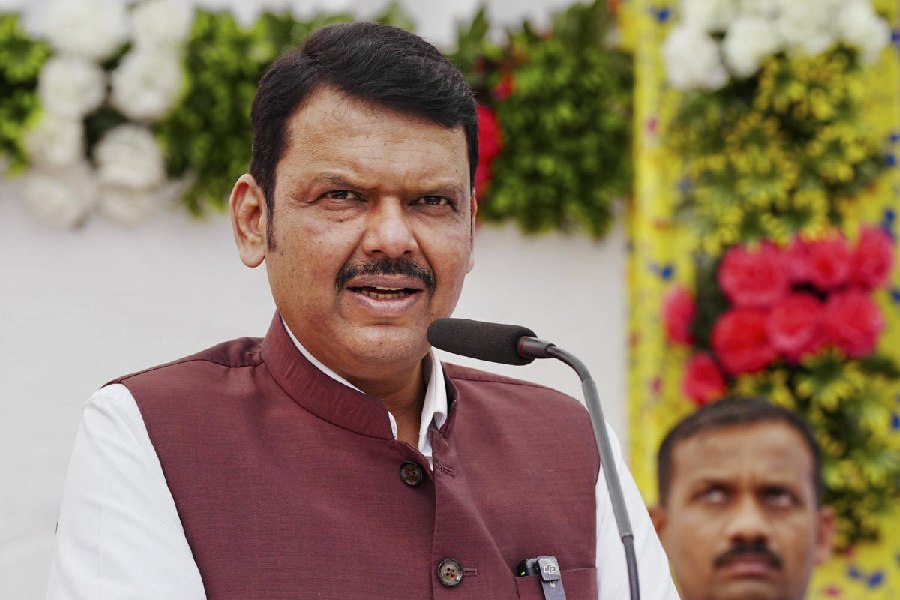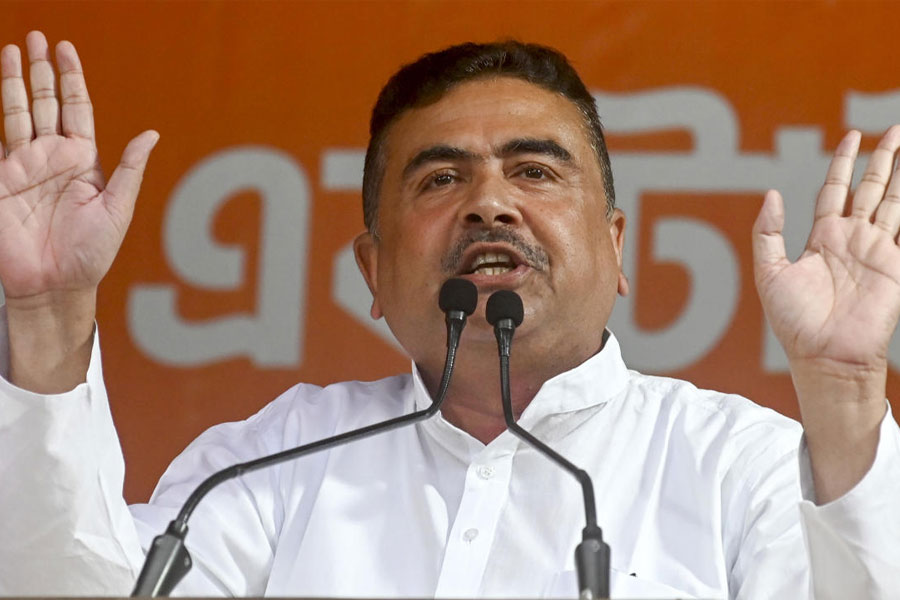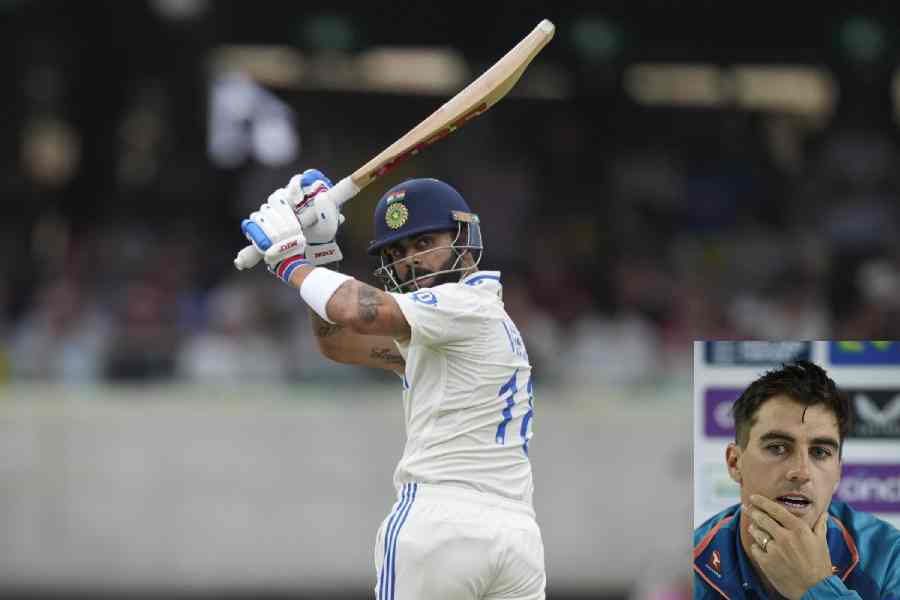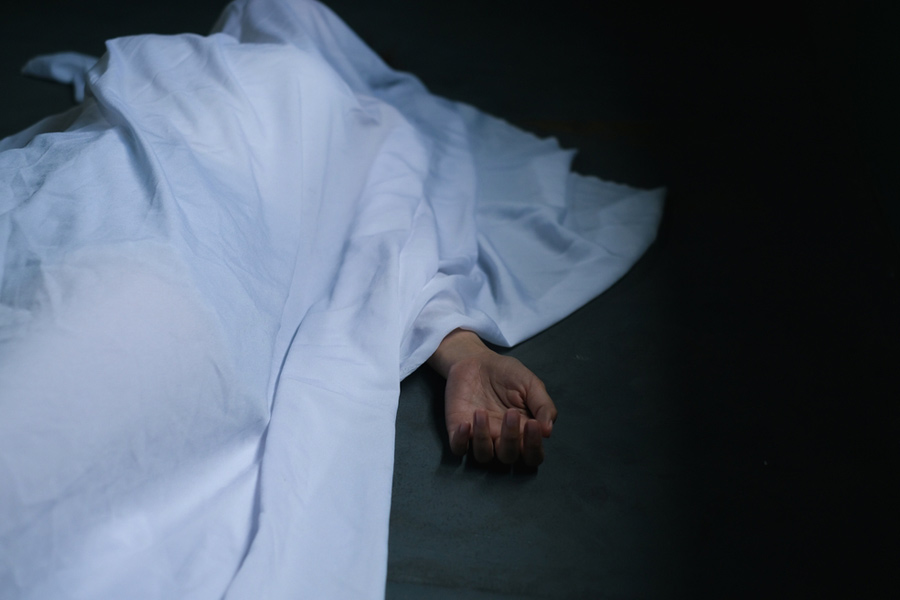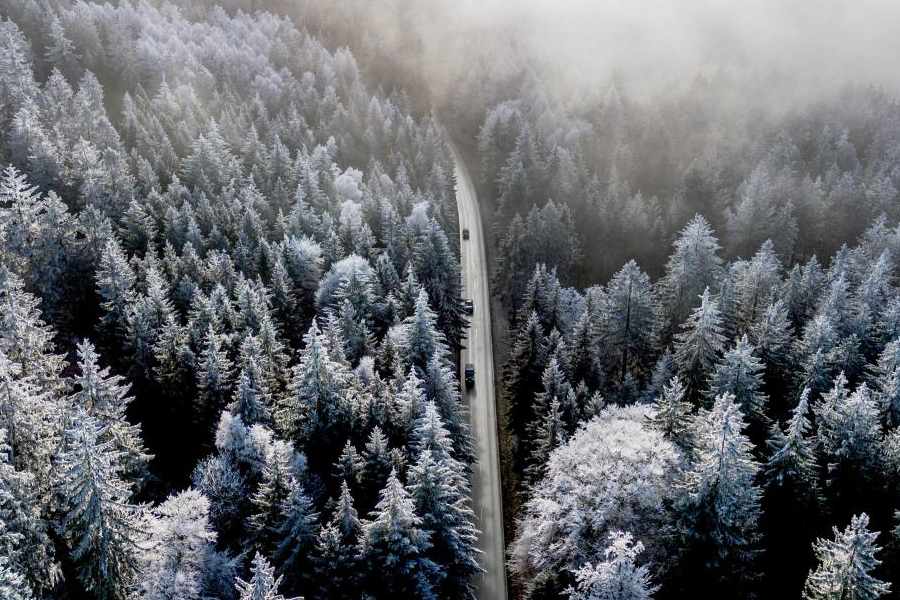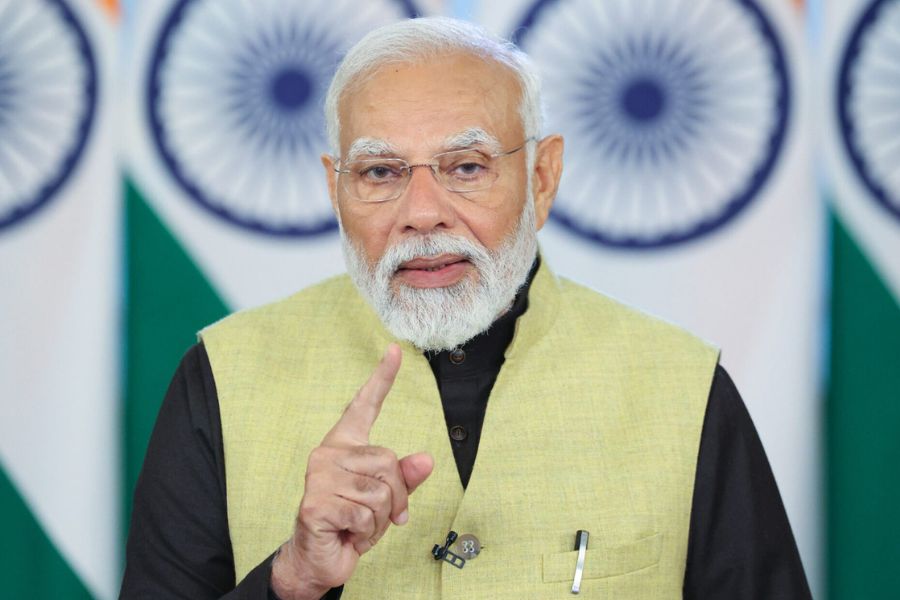Sir — I did not know that phuchka, a favourite of Indians across class, caste and regions, was allegedly first prepared by Draupadi for her husbands as per the instructions of her mother-in-law (“Oh please, give me a mouthful now”, July 25). There is a popular myth that these mouth-watering treats are especially a hit with the ladies. In fact, a phuchka vendor surrounded by ladies is a common sight in films. But I have always accompanied my wife and daughter to relish this delicious dish. I can never enjoy it without them.
Outside shopping malls, theatres and schools, phuchka vendors are always busy selling the round puffs filled with mashed potato and tamarind water no matter what the season. Truly tasty, one can forego a lot of other treats but not phuchkas. But from next time, whenever we put that delicious snack in our mouth, we should be thanking Draupadi. The phuchka is a point of pride for us Indians, wherever we are and by whatever name we call it. This delicacy must get a place in the pages of history and be included in retellings of the Mahabharata.
Alok Ganguly,
Kalyani
Sir — While much was made of panta bhaat being served on MasterChef Australia, few batted an eye-lid when phuchka made it to the judges’ table. This is because in spite of its humble origins on the street, phuchka is undoubtedly the star of the Indian culinary world. Michelin-starred restaurants across the world have some or the other version of phuchka on their menu. In spite of occasional skirmishes over whether the phuchka came first or the golgappa and which is better, this king of chaat is approved by all and unsullied by gastronomic politics. Irrespective of whether it is phuchka, pani puri, batasha or golgappa we are eating, our eyes and noses are equally watery with all the spice; we each have a gulp of the sour water at the end, followed by a sookha — a dry phuchka — to conclude. The rituals are the same.
Indeed, the one thing people across India have most missed during the lockdown — besides social contact — may have been the phuchka. This is perhaps why a food company has invented the golgappa ATM to dispense contactless phuchkas. If these machines are installed in the country, the queues outside these ATMs would not move for none can ever have too many.
Yashodhara Sen,
Calcutta
Natural outcome
Sir — The organizers of one of the planet’s largest gatherings to celebrate the human body, ironically, get very stressed out about one of the human body’s most basic needs: sex. At a time when the world is living through a pandemic, the International Olympic Committee has imposed strict rules regarding physical contact among everyone that is part of the bubble. Yet, condoms are being used to mend kayaks and an exclusive dating app for Olympic participants is doing brisk business in Tokyo. No virus is potent enough to stop nature from taking its course.
Suman Padhi,
Calcutta
Costly fun
Sir — For many, the rise of commercial space tourism is a vulgar display of wealth and power. Amid several global crises, including climate change and a pandemic, billionaires are spending their cash on launching themselves into space for fun. But critics will not deter the super-rich. Space tourism is now a reality for those who can afford it. But it will have repercussions for everyone, especially those who cannot ever dream of making such a trip.
The carbon footprint of launching oneself into space in one of these specially-engineered rockets is incredibly high, close to about 100 times higher than if one takes a long-haul flight. A 2010 study found that the soot released by 1,000 space tourism flights could warm Antarctica by nearly one degree Celsius. This would play havoc with the Paris agreement goal of reducing global temperatures. As ever, the pointless enjoyment of a handful of spoilt billionaires will cost the majority of earth’s residents dearly. Space tourism must be strictly regulated, if not completely banned.
Rima Roy,
Calcutta

